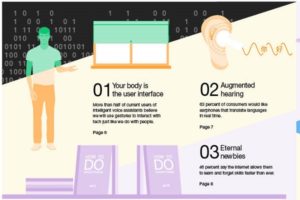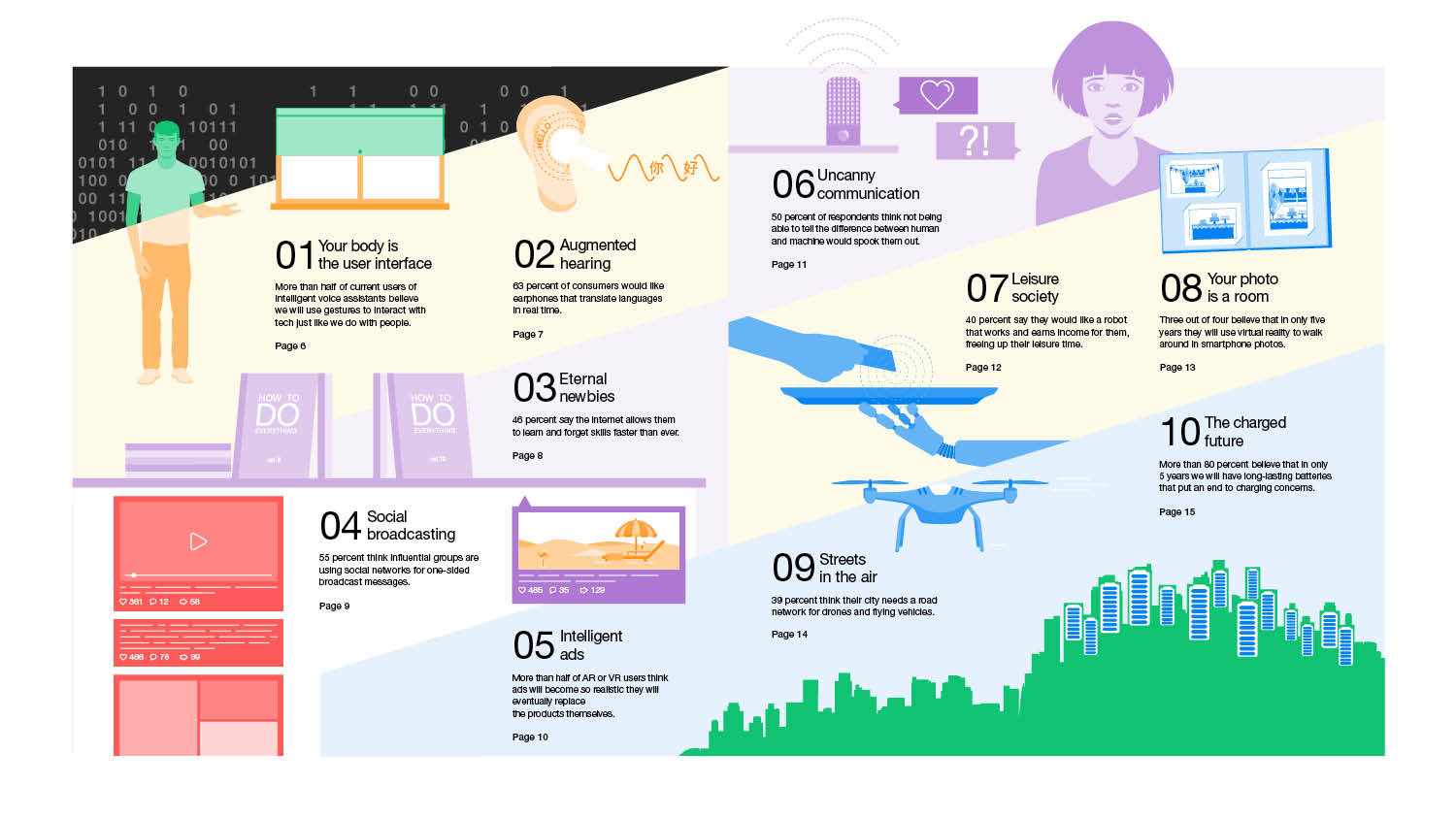
- Consumers expect technology interactions to be controlled by intonation, facial expression and body language
- Earphones will become a 24/7 accessory, even when sleeping
- 51 percent of Augmented Reality/Virtual Reality users believe artificial intelligence (AI) will render ads indistinguishable from the actual products
Exploring the future from an early adopter user perspective, Ericsson ConsumerLab presents the seventh edition of its annual trend report, The 10 Hot Consumer Trends for 2018 and beyond.
The report points to a paradigm shift as consumers expect digital technology to increasingly operate on human terms. Body language, facial expression and intonation will augment voice and touch to control consumer interaction with tech devices, easing adaption in an ever-increasing pace of technological change.

These are the 10 trends for 2018 and beyond:
- Your Body is the User Interface: More than half of current users of intelligent voice assistants believe that we will use body language, expression, intonation and touch to interact with tech devices as if they were fellow humans. Some 2 in 3 think this will happen within a mere 3 years.
- Augmented Hearing: 63 percent of consumers would like earphones that translate languages in real time. 52 percent want to block out a family member’s snoring.
- Eternal Newbies: 30 percent say new technology makes it hard to keep their skills up to date. But it also makes us instant experts. 46 percent say the internet allows them to learn and forget skills faster than ever.
- Social Broadcasting: Social media is being overrun by traditional broadcasters. But half of consumers say AI would be useful to check facts posted on social networks.
- Intelligent Ads: Advertisements may become too smart for their own good. More than half of augmented reality (AR)/virtual reality (VR) users think ads will become so realistic they will eventually replace the products themselves.
- Uncanny Communication: 50 percent think not being able to tell the difference between human and machine would spook them out. 40 percent would also be spooked by a smartphone that reacts to their mood.
- Leisure Society: 32 percent of students and working people do not think they need a job to develop a meaningful life. 40 percent say they would like a robot that works and earns income for them, freeing up leisure time.
- Your Photo is a Room: Imagine being able to walk into a photo and relive a memory. 3 out of 4 believe that in only 5 years they will use virtual reality to walk around in smartphone photos.
- Streets in the Air: City streets may be choked with traffic but the skies remain free. 39 percent think their city needs a road network for drones and flying vehicles. But almost as many worry that a drone would drop on their head.
- The Charged Future: The connected world will require mobile power. More than 80 percent believe that in only 5 years we will have long-lasting batteries that will put an end to charging concerns.
Michael Björn, Head of Research, Ericsson ConsumerLab, says: “We are entering a future where devices neither have buttons and switches nor need to be controlled digitally via your smartphone. In fact, this may be a necessary change, as it would be difficult for people to learn a new user interface for every device that gets connected to the Internet of Things.
“Today, you have to know all the intricacies of the devices you use. But in the future, the devices will know you instead. For this to become a reality, devices must be able to relay complex human interaction data to cloud-based processing, and respond intuitively within milliseconds, increasing requirements on next generation connectivity.”
The insights in the 10 Hot Consumer Trends for 2018 report are based on Ericsson ConsumerLab’s global research activities over more than 22 years, and draw on data from an online survey of advanced internet users in 10 influential cities across the world, performed in October 2017. Although the study only represents 30 million citizens, their early adopter profile makes them important to understand when exploring future trends.


















